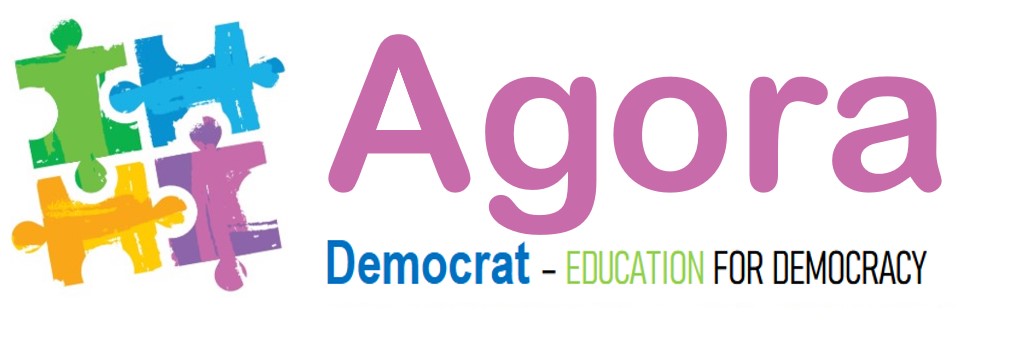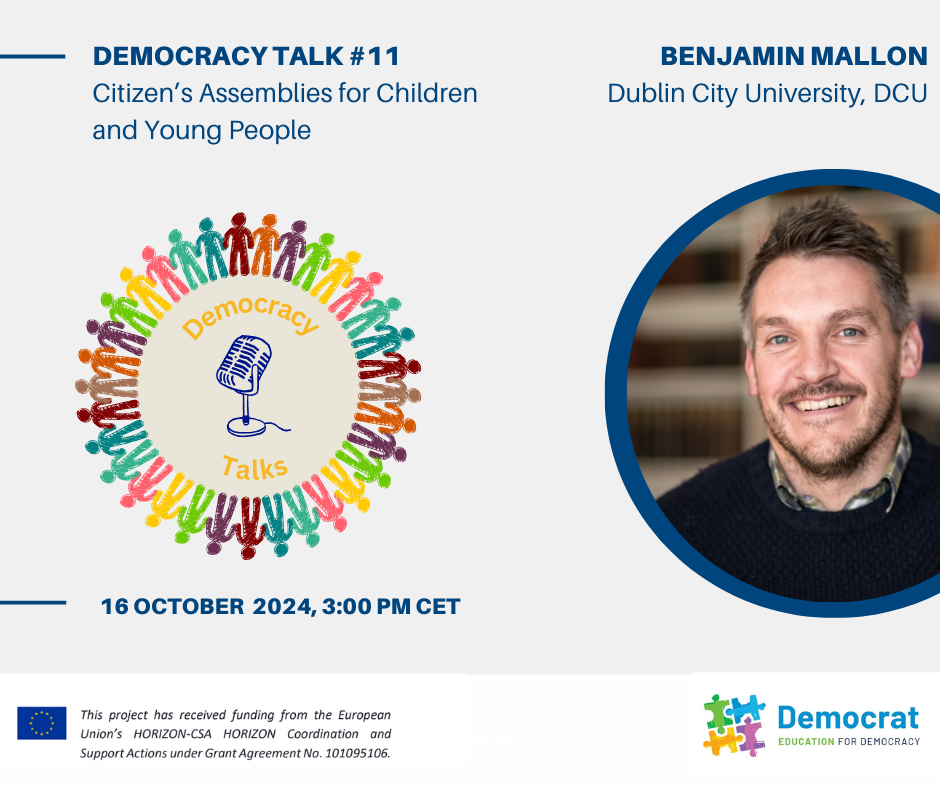By Vanina Morrison
On October 16th, we had the pleasure of speaking with Ben Mallon from the Democrat Project about citizens’ assemblies for children and young people. I’d like to take a moment to reflect on Ben’s insightful session and highlight key themes that are important for us to remember.
This session marked our eleventh gathering of the Democracy Talks, where we had the pleasure of hosting Diana Trevino, Project Officer at the European University Continuing Education Network, who introduced Benjamin Mellon, an expert on democratic education and youth engagement. Benjamin shared insightful perspectives on citizens’ assemblies for children and young people and their profound implications for fostering democratic education.
Benjamin’s presentation highlighted key findings from a collaborative research project led by his team at Dublin City University, exploring the role of children’s assemblies in strengthening deliberative democracy and environmental awareness. He introduced us to a groundbreaking assembly held in Ireland, where children aged 7 to 17 gathered to address biodiversity loss. The participants engaged in activities designed to deepen their understanding of environmental challenges, leading to a shared vision of a sustainable Ireland rooted in nature and community.
Key Themes Explored
- Inclusivity in Decision-Making
Benjamin emphasized the need for inclusive, intergenerational justice, arguing that children’s perspectives are crucial in tackling global issues like biodiversity loss. This assembly provided a unique space for youth voices, which are often overlooked, to be heard. As one participant poignantly noted, “If children and young people aren’t going to be part of their own future, how can we possibly solve this?” - Education and Democratic Competence
The assembly highlighted the importance of education as a foundation for informed, collective decision-making. By learning about complex topics such as biodiversity, children gained the knowledge to participate meaningfully in democratic processes. Through collaborative activities, they practiced decision-making not only for themselves but for the community, showcasing the potential of school-based assemblies to nurture democratic competence. - Action and Impact Beyond the Assembly
The assembly inspired participants to act within their schools, communities, and even at a broader national level. One child described addressing local council leaders on environmental issues, demonstrating how these assemblies empower young people to engage in citizenship beyond the classroom.
Questions for Reflection
We invite you to reflect on the following questions as you consider the role of youth assemblies in democratic education:
- Why is it essential to include children and young people in assemblies addressing issues like climate change and biodiversity?
- How can adults and policymakers ensure that recommendations from youth assemblies are taken seriously?
- How can youth assemblies be integrated into broader educational policies to promote democratic values?
For those who missed the latest talk, you can catch the full recording on our YouTube channel here
Thank you to everyone who joined us, especially Benjamin for his inspiring work on youth assemblies. Let’s continue empowering future generations to lead the way toward a democratic and sustainable future.
Disclaimer: This project has received funding from the European Union’s HORIZON-RIA HORIZON Research and Innovation Actions under Grant Agreement No. 101095106. Views and opinions expressed are those of the author(s) only and do not necessarily reflect those of the European Research Executive Agency. Neither the European Union nor the granting authority can be held responsible for them.


Leave a Reply